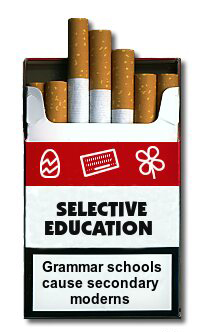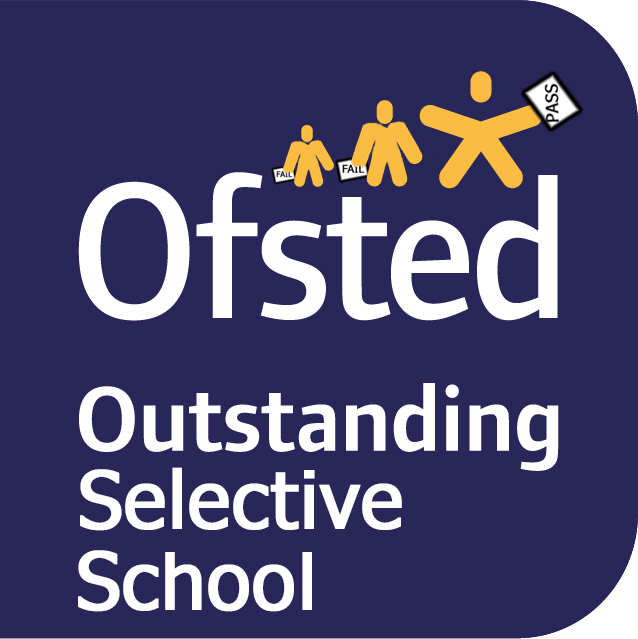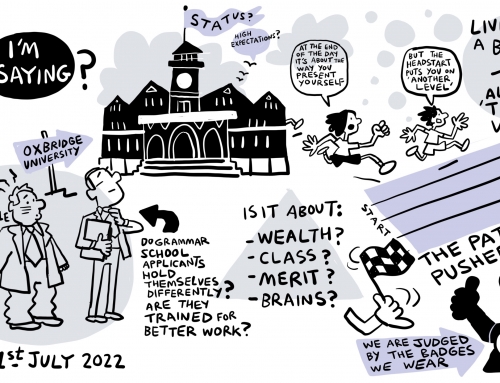By Jo Bartley
It’s not a typical career path to go from marketing online poker to campaigning to stop the 11-plus. But my odd career has led to some insights into surprising overlaps between poker players and parents in selective areas.
Gamblers like to think about their wins, but not so much about their losses. The same goes for most people in the 11-plus system. The majority of gamblers are smart people, they risk an insignificant amount in the hope of a nice cash prize. Parents who enter their child for an 11-plus are also smart, they don’t see any real risk for their child, they simply hope to win a ‘better’ school.
Grammar school places are celebrated, and the downsides are rarely mentioned, and therefore little understood. The tears, the disappointment… we don’t talk about those. The secondary moderns, the schools where the “failed” kids wind up, they’re considered to no longer exist.
We suggest the 11-plus test is simply a rite of passage.
“Don’t worry, they get over it.”
We don’t discuss schools damaged by the selective system.
“They’ll do just fine at high school.”
In the poker community players won’t be questioned about how much they’ve lost over the years. It’s just a harmless pursuit, why would we question something lots of people enjoy? We would never ask gamblers about the things they might have bought instead, or whether it’s really fun to lose. It would be rude to mention these downsides.
In a selective community the parents never chat about the downsides either, to do so would feel almost anti-social. Why would we question grammar schools when lots of people enjoy them? No one wants to hear that few disadvantaged pupils pass the test. No one needs to know about the regret that many parents and children will feel. And where is the joy in talking about the dismal results of the local school system?
In the great selective school gamble, everyone’s eye is on the prize.
‘Isn’t it nice that Clara passed.’
‘Did you hear Langton sent four boys to Cambridge this year?’
‘Oh, it’s a shame that Max didn’t pass…Have you thought about an appeal?’
So how can campaigners raise difficult questions, when no one cares to talk about the problems of selective education?
Maybe there are lessons from the gambling industry on this point too.
The government knows that gambling causes problems. It is highly regulated because of this. It has checks and limits and is policed in ways that ensure it fits our values and expectations, not the other way around. The pressure is on the gambling companies to safeguard the wellbeing of gamblers. Just like there are rules to moderate other bad habits like smoking, drinking and unhealthy food.
No such safeguards exist for selective education. Even though there is a huge pile of evidence showing selective education is just another bad habit. It’s a habit that is bad for the kids who fail, their parents who fork out to pay tutors, it spells trouble for nearby non-selective schools, and it has negative effects on social cohesion.
In short, we desperately need to quit.
But how do we kick the 11-plus habit?
To start, we need to get the public onside.
The government permits our individual right to put our wages into slot machines, to fill our lungs with cigarette smoke, expand our waistlines with junk food. They’ll even put health warnings on them as they do so.
 So perhaps it’s time to introduce public health information around school selection?
So perhaps it’s time to introduce public health information around school selection?
What if every grammar school website had to display clear information about its entry patterns – just like nutritional traffic light labels?
It might say:
This school educates 2% of pupils with Free School Meals. Our nearest non-selective school neighbour educates 12%.
This school educates 2% pupils with SEND support. Our nearest non-selective school neighbour educates 9%.
That sounds like a red traffic light to me. Or put another way, “Not an inclusive school”. Perhaps that would make the school think?
The advertising industry faces regulations too. So why not police selective schools with an education equivalent of the Advertising Standards Agency when school results will mislead the public?
For every grammar school banner that says: ‘100% of pupils achieved Maths and English GSCE at 5 and above’, let’s add a disclaimer saying:
“Selecting high attaining pupils means selective schools will achieve superior results compared to non-selective schools. There is no proven results advantage for individual pupils attending grammar schools.”
We could go further. Let’s add cigarette style warnings to secondary school application forms.
‘Grammar schools can damage other local schools and overall results in an area. Please choose your school responsibly.’
Just as the government requires the Gambling Commission to monitor and regulate gambling, it could charge Ofsted with monitoring schools to ensure they support socially responsible education.
We judge schools for leadership and curriculum, but why not assess schools for inclusivity too?
Grammar schools reject local kids with barely an explanation. Nothing more than ‘it’s always been like this.’ They seem unfazed by their low numbers of SEN and disadvantaged pupils.
 If we judge grammar schools for inclusivity, then Ofsted should mark grammar schools ‘inadequate,’ and give them a requires improvement to nudge them to change their admissions.
If we judge grammar schools for inclusivity, then Ofsted should mark grammar schools ‘inadequate,’ and give them a requires improvement to nudge them to change their admissions.
We all care about a school’s poor exams results, but shouldn’t we also care about the schools that damage social cohesion too?
But I get it. My new system of health warnings is unlikely to take off. And I don’t know if it really would change parent’s perception of selective education.
Just as people eat and drink to excess, people will continue to do things even when they know they’re harmful.
But I do think a well-informed public would better understand the risks of selection, and care about the impact on their child and community, and maybe then they’d press for change.
We need to move away from the lazy game of getting our child to grammar school and thinking the rest doesn’t matter.
W e need to start a conversation with a well-informed public about the problems of secondary moderns (they do exist), while understanding that the Langton school’s results, which are to the credit of their pupils, are actually nothing special.
e need to start a conversation with a well-informed public about the problems of secondary moderns (they do exist), while understanding that the Langton school’s results, which are to the credit of their pupils, are actually nothing special.
We can also learn from public health campaigns that make healthy choices a natural option. The easy availability of vegan food, alcohol-free beer, and e-cigarettes help the public to change their habits. Grammar schools meet parent’s desire for specialist provision for high attainers, so what can we do to give parents confidence high attainers will thrive in comprehensive schools? A vegan aisle in a supermarket will convert more people to a meat-free diet than a ‘meat is murder’ protest march. We need to talk about the inclusive schools that give support to high attainers, bashing ‘bad guy’ grammar schools is a poor tactic.
Let’s quit this addictive 11-plus that’s so bad for our children. Let’s choose a healthy school system instead.
Our Future Thoughts series of articles are opinion pieces designed to provoke debate, they represent the views of the author and not Comprehensive Future policy.
Jo Bartley is a parent in Kent and Campaign Support Officer for Comprehensive Future. She is writing this in her personal capacity.




